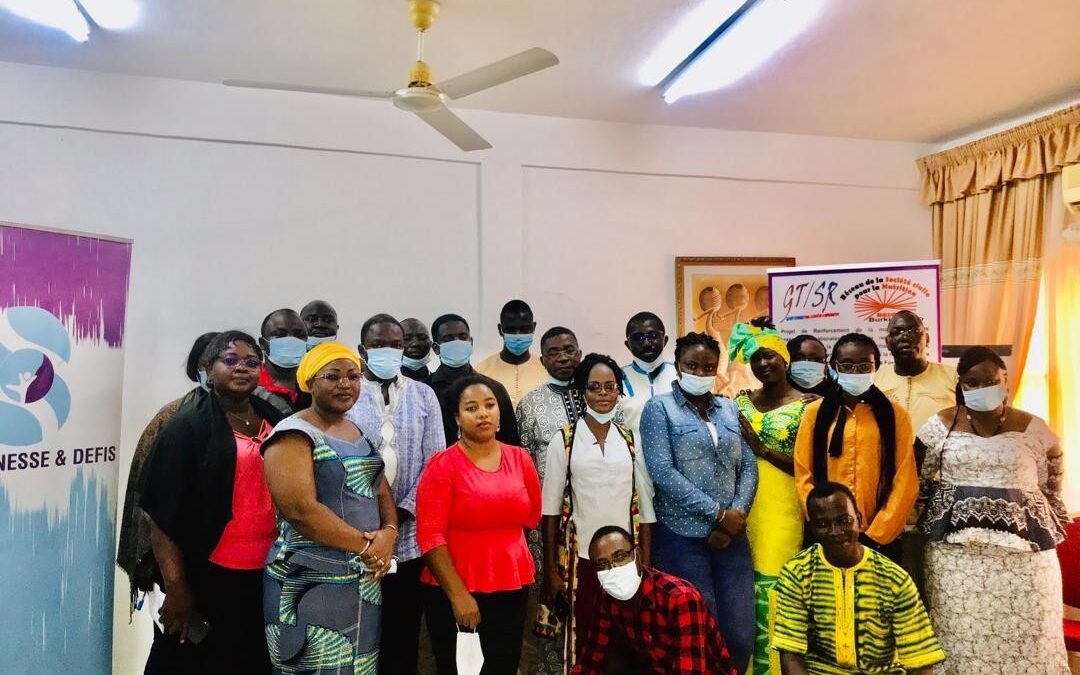Written by Ramatoulaye Diallo (CEFOREP)
Very early on, Burkinabé civil society, grouped together within the Technical Reproductive Health Group (GTSR) and the Civil Society Network for Nutrition (RESONUT), participated in all stages of the GFF process from situational analysis to implementation and monitoring of the investment case.
As part of its activities, civil society in Burkina Faso has set up a virtual platform to monitor and capitalize on the implementation of the investment case. It has also developed communication materials (flyers, leaflets, kakemonos, local radio programs) to raise awareness among community leaders about GFF. To this, we add the advocacy that has made it possible to mobilize the private sector (companies and mining and commercial companies) through the social responsibility of the company and local authorities for the financing of the investment case.
However, in addition to the COVID-19 pandemic, Burkina Faso is experiencing a security situation that is not conducive to taking action in part of its territory. This situation slows down the implementation of activities on the ground because of the inaccessibility of some areas due to the insecurity linked to the presence of jihadists.
In its perspective, Burkina Faso’s civil society involved in the GFF aims to:
- monitor the commitments made by mining and commercial companies in relation to the resources available for the implementation of the activities;
- contribute to the accountability of the investment case through the media for areas inaccessible due to insecurity;
- work to formalize a framework for resource mobilization by developing a project to support the process of stakeholder commitment for the financing of Burkina Faso’s investment case.

